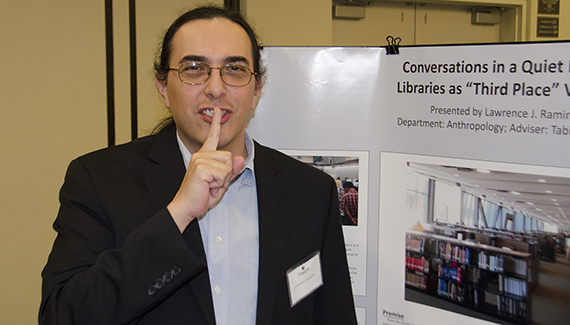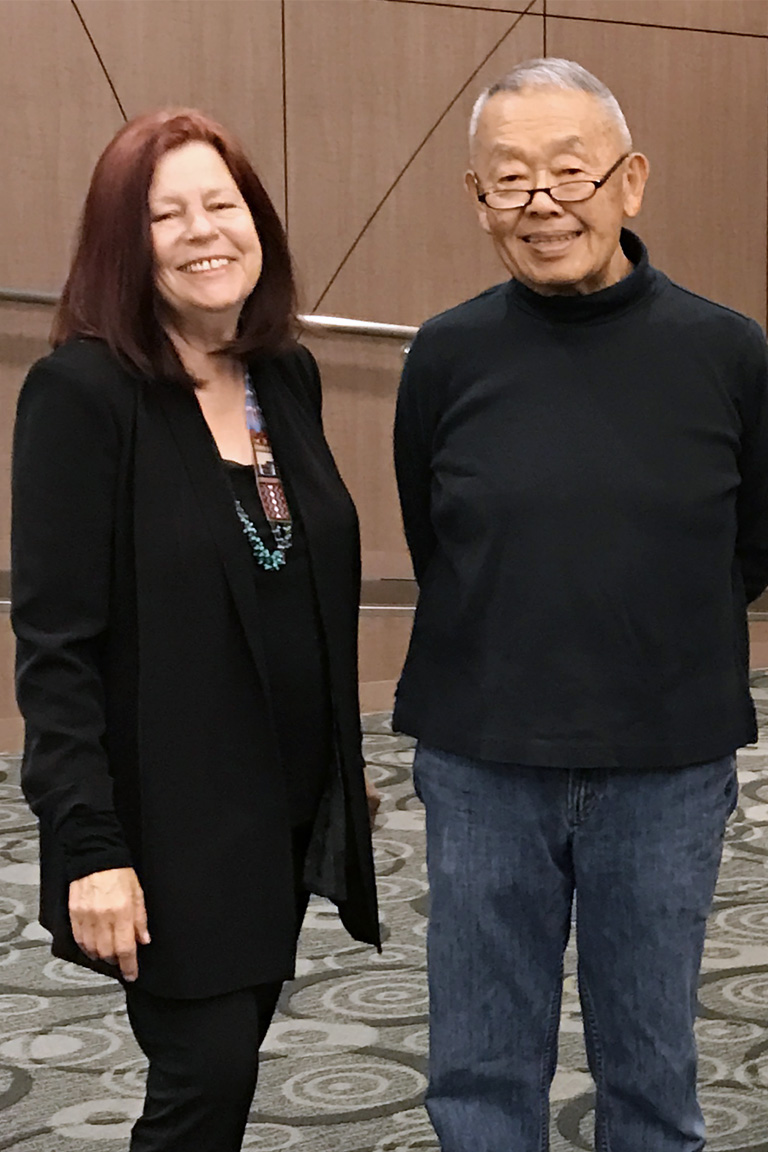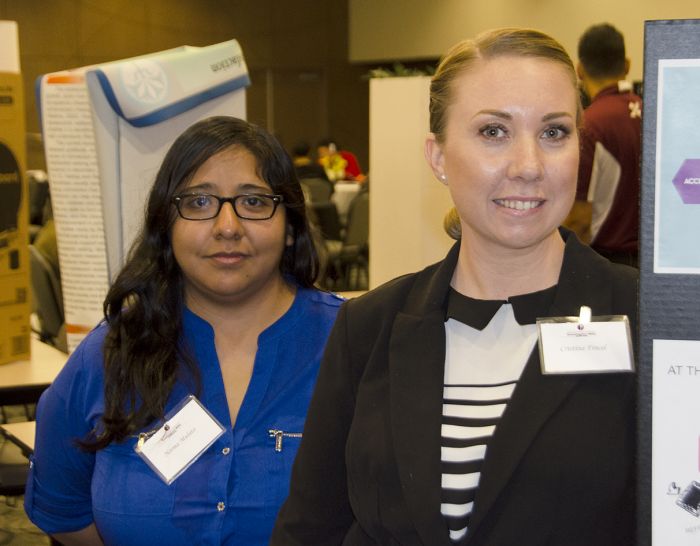
California State University, Dominguez Hills’ (CSUDH) Center for Service Learning, Internships and Civic Engagement (SLICE) celebrated the innovative community engagement ideas and approaches of students, faculty, and community partners during the fourth annual Community Engagement Symposium.
Hosted by SLICE in the Loker Student Ballroom April 3, the symposium was highlighted by the presentation of the 2017 Community Engagement Awards. This year’s winners were:
Community Hero Award: Thomas Philo, archivist in the University Library.
Innovation is Sustainability Award: Jonathan Scheffler, director of the Physical Plant.
Outstanding Community Partner Award: Steve Colman, executive director of the Villages at Cabrillo in Long Beach, Calif.
Engaged Department Award: the Anthropology Department at CSUDH.

The symposium was also a venue for nearly 130 students and their faculty mentors to showcase their community engagement-based projects and research, which they discussed with attendees who browsed their poster presentations during the event.
Symposium keynote speaker Donald Hata, professor emeritus of history at CSUDH, presented “It Could Happen Again: the 75th Anniversary of Executive Order 9066 and America’s Concentration Camps.” Hata was incarcerated as a child with his parents during World War II in an internment camp in Gila, Arizona.
Lawrence Ramirez, a double major in anthropology and art history, presented his research regarding the growing trend of public libraries to transform from primarily archives of information found in books and book collections, microfiche, and other sources to places of social interaction, a trend driven by the proliferation of online research materials and web-based “e-libraries.”
Titled “Conversations in a Quiet Place: Libraries as ‘Third Place’ Venues,” Ramirez’s presentation showcased his visit to South Bay libraries where he observed and photographed how they were being utilized, and to conduct interviews with librarians, staff, and patrons.
“I visited dozens of libraries to see how people interact there, how they use the space, and what people were doing. I noticed people were talking–at one time frowned upon in libraries. They were meeting in book clubs and having many types of social interactions,” said Ramirez, who named his presentation after urban sociologist Ray Oldenburg’s concept of the “third-place”–the first being where you live, the second one’s work, and the third where one engages in social activities. “It turns out libraries have been influx like this for over 20 to 30 years, and that the focus on collections isn’t quite the emphasis anymore. Instead, it’s about getting people into libraries to engage them as social venues, and/or in educational community interaction projects.”

Adjacent to Ramirez’s station were psychology majors Cristina Fincel and Norma Mulato, who presented their poster “Design Your Life (DYL): How a Class Helps Connect Students to a Professional Community and Their Futures.” Their research was based on a study of the fall 2016 pilot course Design Your Life, taught by Giacomo Bono and Heather Butler, assistant professors of psychology at CSUDH.
According to Mulato and Fincel, the course–now in its second semester–utilizes comprehensive design framework, knowledge of marketplace realities, and empirically tested strategies for professional planning and networking to “provide students the knowledge and skills necessary to strategically transition from the university into their careers.” The course was modeled after Stanford University’s “widely popular” DYL course.
The students conducted their preliminary research by surveying the class before and after the semester ended to gather such data as how students felt about their potential for success in the future, their life skills, self-regulation, job-search knowledge, and career networking abilities.
“We found that by the end of the semester all their knowledge and skills had increased. The only thing that went down was career anxiety, which is a good thing of course because a lot of students have anxiety about their future careers. Now, the students surveyed are much better equipped to transition from being students to professionals,” said Fincel. “[During the course] the students experience job fairs and workshops, they do [mock] interviews…This is especially important for millennials who are often overly dependent on the Internet. The course really helps them with face-to-face interaction, being proactive, changing their mentality, and preparing them to get engaged in their community and their careers early on.”